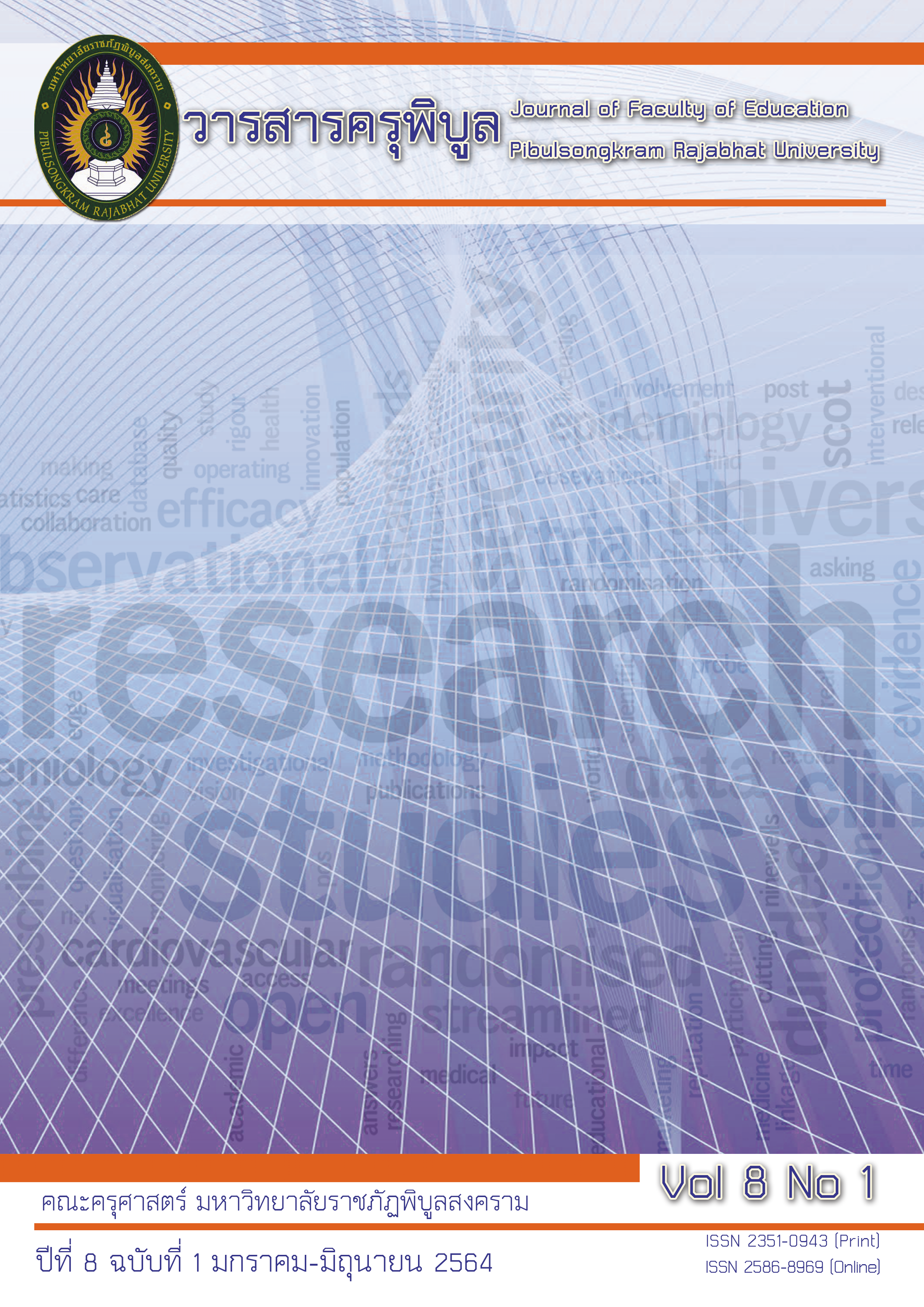E-Learning for Food Literacy Learning Management
Keywords:
Food Literacy, E-Learning, Food Literacy Learning ManagementAbstract
This research aimed to 1) develop e-Learning for food literacy learning management 2) study implementation of e-Learning for food literacy learning management, and 3) evaluate the use of e-Learning for food literacy learning management. The participants were seven pre-service home economics teachers in the university and register in food literacy subject. The research instruments were (1) food literacy lesson plans (2) various materials and phone application for food literacy learning management (3) material evaluation form (4) reflective journal from the participating student teachers and (5) reflective journal from the instructor. The research was conducted by explaining about the food literacy concept to the participants, asking the participants to engage in an online lesson and share ideas in classroom, and demonstrating the lesson about food literacy issues, respectively. The data was analyzed by percentage, mean and content analysis. The result revealed that assignment I - creating website by participants – the top 3 topics related to food literacy were nutrition, environment, and health; and the top 3 keywords related to food literacy were food safety, local food, and food choices. The overall score of the website evaluation in three issues; 1) communication 2) images related to food literacy, and 3) latest news/situation related to food literacy were at good level. In Assignment II, the result showed that the material for communication with others had full score in all four topics.
References
วิจารณ์ พานิช. (2558). วิถีสร้างการเรียนรู้เพื่อศิษย์ในศตวรรษที่ 21. นวัตกรรมการเรียนรู้ 1(2): 3-14.
Colatruglio, S. & Slater, J. (2014). Chapter 3: Food Literacy: Bridging the Gap between Food, Nutrition and Well-Being. In Deer, F., Falkenberg, T., McMillan, B. & Sims, L. (Eds.), Sustainable well-being: concepts, issues, and educational practices (pp. 37-55). Manitoba, Canada: Education for Sustainable Well-Being Press (ESWB Press).
Pendergast, D., Garvis, S., & Kanasa, H. (2011). Insight from the Public on Home Economics and Formal Food literacy. Family & Consumer Science Research Journal 39(4), 415-430.
Pendergast, D., & Dewhurst, Y. (2012). Home economics and food literacy – An International investigation. Retrieved April 20, 2018, http://www98.griffith.edu.au/
dspace/bitstream/handle/10072/49542/79938_1.pdf?sequence=1.
The Giessen Declaration. (2005). Public Health Nutrition. September 2005; 8(6A): 783-786.
Ukraisa S. (2017). Food Literacy: New Paradigm and Approach to Develop Learning for Pre-Service Home Economics Teachers. Doctor of Philosophy (Population Education), Faculty of Graduate Studies, Mahidol University.
Vidgen, H. A. (2014). Food Literacy: What is it and does it influence what we eat? Doctor of Philosophy School of Exercise and Nutrition Sciences, Faculty of Health, Queensland University of Technology. Retrieved March 13, 2018, Website: http://eprints.qut.edu.au/66720/1/Helen_Vidgen_Thesis.pdf.



